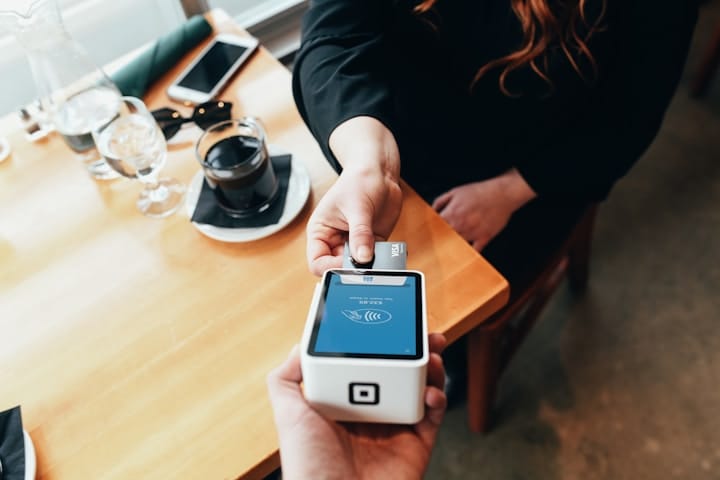Introduction
In an era where consumers are inundated with choices and marketing messages, understanding how to effectively engage them is paramount. Behavioral psychology, the study of how individuals make decisions and the factors that influence their actions, offers valuable insights for businesses seeking to enhance customer engagement. By applying principles of behavioral psychology, businesses can not only improve their marketing strategies but also foster a deeper connection with their customers.
This blog post dives into the various ways that businesses can utilize behavioral psychology to drive customer engagement, providing actionable insights to implement in marketing campaigns, customer service practices, and overall business strategies. With the right application of these principles, companies can create memorable interactions that resonate with their audience, ultimately leading to heightened brand loyalty and increased sales.
Skip Ahead
- Understanding Behavioral Psychology in Marketing
- Key Psychological Principles to Enhance Engagement
- Creating Personalized Experiences
- The Impact of Social Proof on Customer Decisions
- Utilizing Scarcity and Urgency
- The Role of Notifications and Reminders
- Feedback Loops: Encouraging Continuous Engagement
- Measuring the Impact of Behavioral Strategies
Understanding Behavioral Psychology in Marketing
Behavioral psychology provides a framework for understanding consumers' decision-making processes and how certain triggers can influence their behavior. Some notable concepts include:
- Heuristics: Simple rules or mental shortcuts that allow individuals to make decisions quickly. For instance, consumers may rely on brand reputation as a heuristic to judge the quality of a product.
- Cognitive Dissonance: The discomfort experienced when holding conflicting beliefs. Brands can alleviate this by reinforcing positive feelings post-purchase through follow-up communications and customer satisfaction guarantees.
- Loss Aversion: The principle where individuals prefer to avoid losses over acquiring equivalent gains. This can be leveraged in marketing by framing messages to highlight potential losses if a consumer does not act.
By understanding these underlying psychological principles, businesses can craft messaging and experiences that resonate with their targeted audience, making their offerings more appealing and engaging.
Key Psychological Principles to Enhance Engagement
When it comes to enhancing customer engagement, several key psychological principles can be effectively utilized. These principles are foundational elements that inform the way consumers interact with brands, allowing businesses to create more compelling and engaging experiences.
1. Reciprocity
The principle of reciprocity suggests that when individuals receive something, they feel compelled to give something in return. This can be utilized by offering valuable content, discounts, or free trials that motivate customers to engage back with the brand.
2. Consistency
Consumers have a desire to act consistently with their commitments and values. Encouraging small initial commitments, such as signing up for a newsletter, can lead to larger commitments over time, such as making a purchase.
3. Anchoring
This cognitive bias refers to the reliance on the first piece of information encountered when making decisions. Businesses can use anchoring by positioning a high-priced item next to a more competitively priced one, making the second option seem more appealing.
4. Social Proof
The influence of others' actions and behaviors can significantly impact individual choices. Testimonials, reviews, and case studies serve as powerful tools in showcasing how others perceive a product, enhancing credibility.
By implementing these principles into marketing strategies, businesses can significantly bolster their customer engagement levels and drive more interactions with their brand.

Creating Personalized Experiences
Personalization is a powerful tool made possible by behavioral psychology principles. By tailoring experiences to individual preferences and behaviors, businesses can foster deeper connections with their customers. Here are several strategies for achieving personalized engagement:
1. Segmented Email Marketing
Utilizing customer data to segment email lists allows businesses to send tailored and relevant content to specific groups. Personalized emails can have significantly higher open and click-through rates compared to generic communications.
2. Customized Recommendations
Many e-commerce platforms, like Amazon, utilize algorithms that analyze previous purchasing behavior to provide personalized product recommendations. This not only enhances the shopping experience but increases the likelihood of conversions.
3. Dynamic Website Content
By incorporating behavioral data to alter website content in real-time, businesses can present users with information or products that resonate with their unique preferences and interests. This can lead to increased engagement and conversions.
4. Tailored Customer Service
Effective training of customer service teams to recognize individual customer preferences enables a more personalized interaction. Addressing customers by name and referencing past interactions can significantly enhance customer satisfaction.
By emphasizing personalization in various aspects of the customer journey, businesses can create memorable experiences that lead to improved engagement and loyalty.
The Impact of Social Proof on Customer Decisions
One of the most powerful principles in behavioral psychology is social proof. This concept revolves around the idea that individuals often look to the actions and behaviors of others to guide their own decisions, particularly in situations of uncertainty. Businesses can leverage social proof in several effective ways:
1. Customer Reviews and Testimonials
Prominently showcasing positive customer reviews and testimonials on websites or social media channels serves as evidence of a product's quality. Studies suggest that 92% of consumers read online reviews and use them to determine their purchases.
2. Use of Endorsements
Partnering with influencers or reputable figures in the industry to promote products can significantly enhance credibility. Consumers often trust recommendations from trusted sources more than traditional advertising.
3. Displaying User Numbers
Indicating the number of customers who have purchased or engaged with a product can motivate new customers to join the trend. For example, stating that "1,000 people have recently bought this item" generates a sense of urgency and a desire to be part of the crowd.
Incorporating social proof effectively can not only enhance customer confidence but also drive further engagement.
Related Blog: Building Long-Term Relationships With Early Adopters

Utilizing Scarcity and Urgency
The psychological principles of scarcity and urgency can create immediate engagement by prompting consumers to act quickly. Here’s how to effectively utilize these principles in marketing messages:
1. Limited-Time Offers
Promoting time-sensitive deals or discounts encourages customers to make quick purchasing decisions. Phrases like "only available for 24 hours" can trigger a fear of missing out (FOMO).
2. Limited Stock Notifications
Informing customers about limited stock availability can drive urgency. Messages such as “Only 3 items left in stock!” can motivate quick purchases to avoid losing out.
3. Exclusive Deals for Subscribers
Offering exclusive discounts to newsletter subscribers can create both scarcity (limited availability) and urgency (time-sensitive). This motivates customers to sign up and act quickly.
By employing strategies that stimulate a sense of scarcity and urgency, businesses can effectively enhance customer engagement and drive sales.
The Role of Notifications and Reminders
Behavioral psychology emphasizes the importance of reminders and prompts in maintaining engagement. By utilizing notifications, companies can ensure that they remain on their customers' minds and encourage them to take action. Here are some strategies to consider:
1. Email Reminders for Cart Abandonment
Implementing automated email campaigns for cart abandoners can remind potential customers of items left behind, effectively prompting them to return to finalize the purchase.
2. Mobile App Notifications
For users with mobile apps, push notifications can be utilized to share new products, promotions, or reminders about events. These direct messages keep users informed and engaged with the brand.
3. Event Reminders
Sending reminders for upcoming events, webinars, or live chats can significantly boost participation rates, encouraging customers to engage with the brand actively.
Utilizing notifications and reminders as proactive engagement tools can help maintain ongoing interactions with customers, ultimately fostering loyalty and relationship-building.

Feedback Loops: Encouraging Continuous Engagement
Establishing feedback loops is essential for enhancing customer engagement. It allows businesses to gather insights from customers and make adjustments based on their preferences. Here are effective methods to create feedback loops:
1. Customer Surveys
Conducting surveys after a purchase or interaction provides valuable insights into customer satisfaction. Utilize platforms like SurveyMonkey to create and distribute surveys effectively.
2. Social Listening
Monitoring social media channels for customer sentiments can give businesses real-time feedback on their brand perception, product preferences, and overall engagement.
3. Follow-Up Emails
Following up with customers after their interactions shows appreciation and can serve as an opportunity to gather feedback. This can also reinforce positive feelings about the experience.
4. Loyalty Programs
Loyalty programs can encourage continuous engagement by rewarding customers for their feedback and interactions. This not only enhances engagement but also fosters a sense of community.
By implementing feedback loops, businesses can ensure that they not only meet customer needs but also create a culture of continuous engagement and improvement.
Measuring the Impact of Behavioral Strategies
Finally, it is critical for businesses to measure the effectiveness of their behavioral strategies. By assessing how these strategies influence customer engagement, companies can refine their approaches and optimize future efforts. Here’s how to measure impact:
1. Analyzing Engagement Metrics
Utilizing tools like Google Analytics allows businesses to track engagement metrics such as click-through rates, conversion rates, and session durations. Analyzing these metrics will help in assessing the effectiveness of the implemented strategies.
2. A/B Testing
Implementing A/B tests on different strategies can offer insights into which approaches resonate better with customers. Testing variations in messaging, design, or timing can inform improvements and maximize engagement.
3. Customer Feedback
Continuously seeking customer feedback can provide qualitative data on how well the strategies are enhancing their experience. Gathering insights through surveys or social listening is invaluable.
4. Adapting Strategies
Based on the collected data, businesses should be prepared to adapt their strategies as needed. Flexibility and a willingness to adjust based on customer preferences can significantly boost engagement outcomes.
By measuring the effectiveness of behavioral strategies and making informed adjustments, organizations can enhance customer engagement and foster lasting relationships.
Related Blog: How to Use Customer Feedback to Improve Your Startup
Conclusion
Incorporating behavioral psychology into marketing and customer engagement strategies provides businesses with actionable insights that can significantly improve customer interactions. By leveraging principles such as social proof, personalization, and urgency, brands can create meaningful experiences that resonate with their audience. Furthermore, establishing feedback loops and utilizing technology to analyze engagement metrics fosters continuous improvement.
In today's competitive landscape, understanding and applying behavioral psychology will not only engage customers but also cultivate brand loyalty and long-term relationships. By implementing these strategies, businesses can position themselves for lasting success and a deeper connection with their customers.







